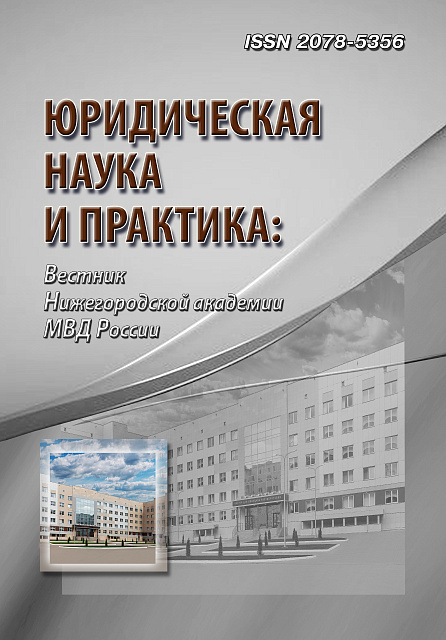Russian Federation
The work focuses on the fact that the widespread introduction of robotization in the context of the development of a digital society requires improving security measures when introducing technological processes based on artificial intelligence, due to real risks leading to negative consequences. In particular, the development of technological processes will contribute to an increase in cases associated with causing harm to society, which will be forced to resort to the development of a legislative framework to bring the perpetrators to legal responsibility. In the process of the study, it was convincingly proven that various threats can arise due to the lack of new technologies adapted to the specific features, criminal legal mechanisms for the protection of public relations, as well as the resulting legislative vagueness on the issue of subjects of legal relations in cases of damage and harm caused by these technologies. In this regard, the relevance of issues involving increased responsibility of both employers and workers themselves associated with the artificial intelligence industry is increasing. In conclusion, it is concluded that by minimizing the various risks of using new technologies, which can lead to unpredictable negative consequences of a resonant nature, it will be possible to ensure the necessary level of public trust on the part of society.
digital society, technological progress, new technologies, legal regulation, legislative activity, legal responsibility, security, legislative measures
1. Legal concept of robotization: monograph / ed. by Yu. A. Tikhomirov, S. B. Nanba. Moscow: Prospekt Publ., 2019. 240 p. (In Russ.)
2. Biryukov P. N. Artificial intelligence and “predictive justice”: foreign experience. Lex Russica (Russian law), 2019, no. 11 (156), pp. 79–87. (In Russ.)
3. Vasiliev A. A., Shpoper D. Artificial intelligence: legal aspects. News of the Altai State University, 2018, no. 6 (104), pp. 23–26. (In Russ.)
4. Yastrebov O. A. Legal personality of an electronic person: theoretical and methodological approaches. Proceedings of the Institute of State and Law of the Russian Acade-my of Sciences, 2018, vol. 13, no. 2, pp. 36–55. (In Russ.)
5. Kobets P. N. Improving legal regulation in the field of using artificial intelligence technologie. Philosophy of Law, 2023, no. 3 (106), pp. 112–118. (In Russ.)
6. Rasskazov L. P. Theory of state and law: a textbook for universities. 2nd ed. Moscow: RIOR Publ., 2009. 343 p. (In Russ.)
7. Begishev I. R., Khisamova Z. I. Criminological risks of using artificial. All-Russian Criminological Journal, 2018, vol. 12, no. 6, pp. 767–775. (In Russ.)













